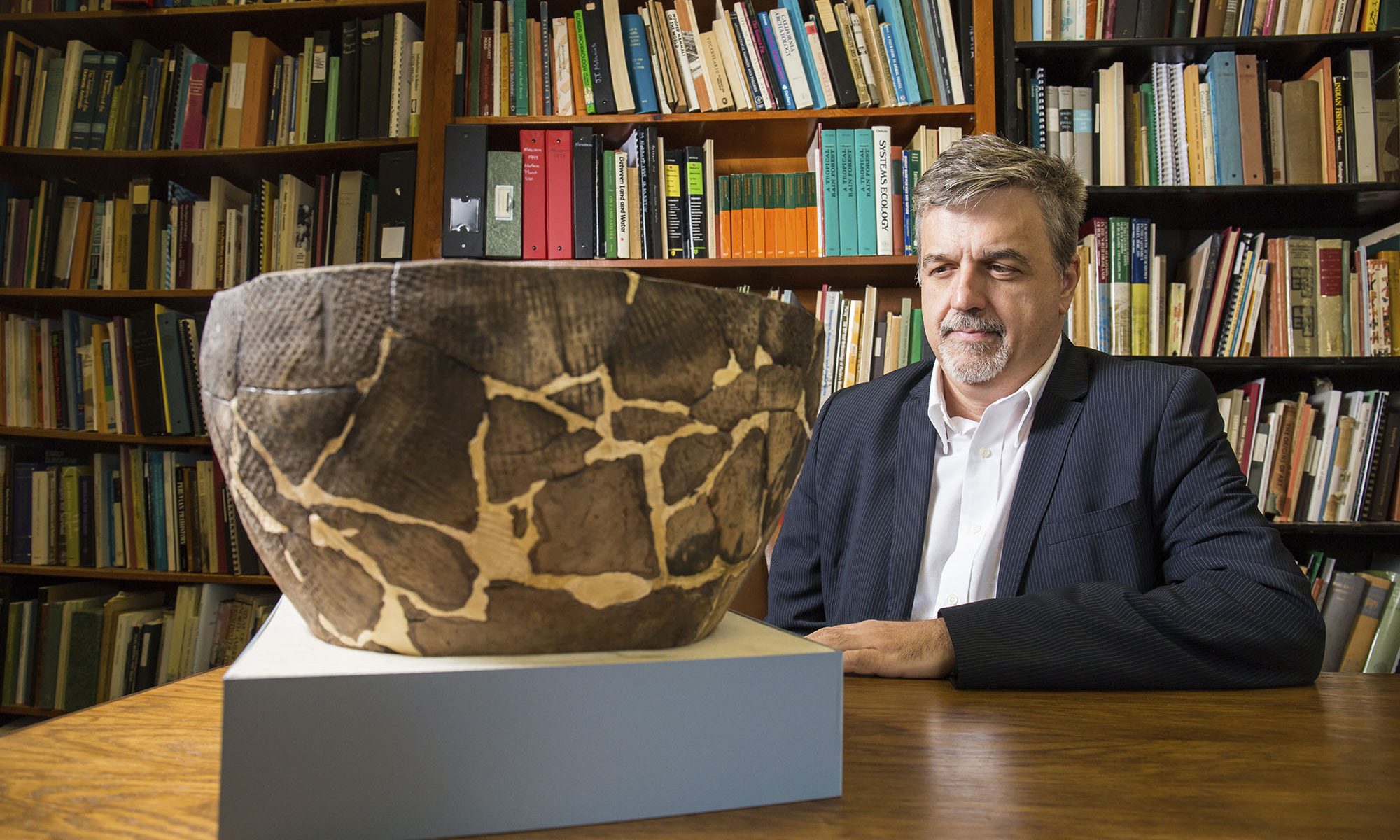This magazine’s name, Ytori, a Spanish variant of the word itori, has a long and Gatored Florida history.
Perhaps it’s something in the water, but alligator worship goes way back in north central Florida. As in seven centuries back, or more. Aaron Broadwell, the Elling Eide Professor of Anthropology at UF, is one of the few experts on the Timucua, an indigenous group who occupied Florida until the early 18th century. The last speakers of Timucua likely died around 1780, but Broadwell is dedicated to preserving their language — and keeping the ancient gator tradition alive.
Sixteenth-century French explorers were the first Europeans to have seen alligators, says Broadwell, and engravings from the period show that they apparently saw impressive displays of Timucua taking down an alligator, or itori, as they called it (sound familiar?). The alligator had a multifaceted role in Timucua culture. Much as contemporary Floridians enjoy the occasional fried gator tail, the Timucua also appreciated the tasty, nutrient-rich meat of the reptile. However, the alligator also held a symbolic position in the culture, as seen in the usage of the word for grandfather: “itori.”
Broadwell has completed a dictionary of the Timucua language, an endeavor previously undertaken only by amateur linguists. As an extinct language not spoken for more than 200 years and with no extant related languages, Timucua is a challenging project in language documentation. Broadwell doesn’t shy away from a challenge; in fact, he’s always been willing to work from scratch. “I didn’t want to add footnotes to others’ work,” he says, explaining why he didn’t focus on better known languages. “I wanted to write the grammar myself.”
He has had some practice, having begun writing grammars and dictionaries as a bright 12-year-old. Bosotrian was a language of his own invention. Years later, he taught courses on invented languages, a ripening field for professional linguists who have developed or expanded languages such as Dothraki on Game of Thrones, Heptapod in Arrival, or, of course, Klingon on Star Trek. Broadwell feels an affinity with Klingon’s inventor, linguist Marc Okrand, who also had training in Native language documentation.
Broadwell attributes his interest in Southeastern Native tongues in particular to his early life as a precocious junior linguist in South Carolina. Although he studied Semitic languages as an undergrad at Harvard, he immersed himself in Choctaw for his dissertation at UCLA and wrote a dictionary of Choctaw for the tribal council. He is currently working with the Seminole tribe to develop a dictionary of Creek. Meanwhile, he keeps the Gator spirit alive in the anthropology department by leading a Timucua language research group with a select group of students.
So, does he enjoy alligator as much as the Timucua did? “I won’t eat tongue, because that’s the token of my culture as a linguist,” jokes Broadwell. It’s a bit of an issue at Cuban restaurants, he says. Thankfully, itori is in plentiful supply, symbolically and literally, in Gainesville.
